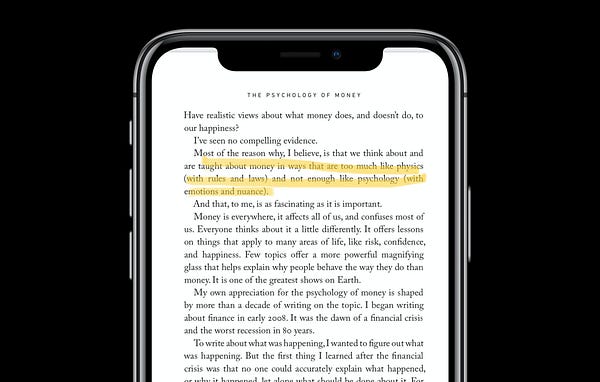4 Ways to Finish More Books & Remember What You’ve Read
My intention is to always have books that are unfinished on the shelf. Before I finish a book, I identify what I’m reading next.

When I was younger we had book reading competitions in class and I would usually win or at least nearly win. I would read 15, 20, even 30 books in a month.
At the young age that I was at, most of the books that I was reading were pretty short and wouldn’t take long to read.
Then I lost my way for a while and didn’t read a book through all of high school and the first few years of college.
After reading that the average CEO read an average of 50 or 60 books a year, I thought I had better get back on track.
If I aspired to become a CEO, it was imperative that I picked up on their actions.
To become a reader, I needed to read.
Here are the 4 things that I’ve consistently done since starting reading again and now completing more than 300 books in 3 years.
1.Maintain a booklist
Keep the Pages Turning
After realizing I should get back into reading, one of the first things that I did was truly expand the book list I had. I’ve always been quite organized and have had a list of some of my favorite books for as long as I can remember.
That changed a little bit after I got into reading books that actually grew me rather than just entertained me.
Now, I’ve got a list of probably 300–400 books along with a list of 20 different lists of books that others have curated.
My intention is to always have books that are unfinished on the shelf. Before I finish a book, I identify what I’m reading next.
I don’t want to finish a book, get out of the daily discipline of reading, and end up not getting back to reading for a while. Frankly, that’s too much lost time and the opportunity cost is far too great to do that.
Book lists also allow me to give credit where it’s due.
When someone recommends a book (and almost everyone has a book or two that they suggest reading), I can thank them for the recommendation once I finish the book.
Without a book list, I might re-read books that were not good, I might forget about authors that impacted me more than others, or I might simply get overwhelmed by the seemingly endless options.
2. Read a minimum number of pages each day
The Slight Edge
When I started getting back into reading, my good friend Nick Berger gave me a book by Jeff Olson called The Slight Edge.
This book talked about the little things that the most successful people did each and every day — no matter what.
One of my main points was to commit to something that you can do every single day no matter what — and then to actually do it.

For me, that meant 10 pages a night, every single night. Now, I read my daily pages each night as one of the last things that I do before sleeping.
While I do not always get my reading done, I am fairly consistent and have found that reading prior to bed is the most effective reading time for me. This allows me to reflect on the book before sleeping, calm my mind, and end with a success every night.
Without a book list, I don’t know what I would be reading — or if I would be at all.
3. Document the key takeaways
Reviewing all Important Learnings
As I mentioned earlier, I’ve always kept lists and documented a lot of different things.
Keeping a running document of the key takeaways is one of the best things that I’ve done and I’m so glad that I decided to do this when I first got back into reading.
Now, when somebody asks about a book, I can send my notes to them or give them the three-sentence summary right away. I don’t always remember what each book was about (many have not been great) but when I read the key takeaways, I am reminded of the context.
It’s been incredibly impactful to page through each book that I’ve completed and see my main takeaways as a whole picture rather than just as segments.
My memory and overall recall of the book is also greatly increased through the multiple touch points.
I read certain segments of the book multiple times.
I highlight and make notes in the margins of each book.
I review my notes after completion of every book.
I write reflections about each book.
4. Utilize audiobooks
Audiobooks have been great.
I drive a lot. I recently spent 50 hours in the car over the course of just over a week. I drove from Florida to Wisconsin, through Kansas City, to Atlanta, and back to Florida. I listened to 7 audiobooks during that week.
While this does not have the same impact as reading because you are not forced to be as disciplined, I’ve sought to mitigate that by listening at a higher rate of speech.
I consistently listen at 3x or 3.5x speed now. I have continually increased the listening speed as Jim Kwik shared in his book Limitless:
“The human brain has the capacity to digest up to 400 WPM of information but the average New York speaker talks at about 125 WPM. This means that 3/4 of your brain could be doing something else while someone is speaking to you.”
As a result, this has proven, again, my method of listening at a higher rate of speed. The main impact that it has for me is my mind is more focused.
As there is not any additional capacity, I’m either listening to the book or I’m not. Sometimes I get distracted and need to go back a few minutes in the book but that’s no problem.
The focus for me is to learn and earn. I learn more through the numerous audiobooks that I finish.
Audiobooks provide another way to expand your learning abilities as most of the time we don’t learn auditorily.

Why Read
There are many things that I have tried and many different things that people have tried to tell me.
But, my goals and my intentions are evident.
I read to learn.
I read to expand myself, become better, and move beyond where I currently am.
Romance novels are great, but they do not interest me.
Adventure novels are fantastic, but they do not directly grow me.
Comicbooks are cool, but the takeaways are not tangible.
It’s the intention.
Many reports have shown that after completing high school, less than 25% of people ever read a book again in their lives. That’s crazy.
Books are so powerful as the drive, investment, and research needed to finish writing a book is usually large.
Your perspective is expanded, your views are challenged, your mindset is strengthened; that’s why I read.
There are many different reasons why people may read or begin reading but simply the discipline of reading every day will push you forward to new levels.
1. Maintain a booklist
2. Read a minimum number of pages each day
3. Document the key takeaways
4. Utilize audiobooks
“If we encounter a man of rare intellect, we should ask him what books he reads.” — Ralph Waldo Emerson
Here is a list of all the books that I’ve completed since I started reading again in May of 2017:
I have finished:
27 books in 2017
118 books in 2018
81 books in 2019
66 books in 2020 (as of August 25)
This is what my 2019 looked like: I finished 81 books; 56 were audiobooks and the remaining 25 were print books. The…harrisonwendland.com
This year, I’m going to surpass my goal of 90 books — split into 30+ print books and 60+ audiobooks.
I’m also going to have written reflections for each of the books that I’ve finished with the main takeaways for me. I realized after 2018 that most people were not going to go through as many books in depth as I was so I had better start sharing some of the value that I was attaining from all of the reading I was part of.
“We are all unique and can learn from everyone; it’s up to us to determine what is worth learning and what isn’t.”
Join my weekly newsletter to see all of my writing here.
